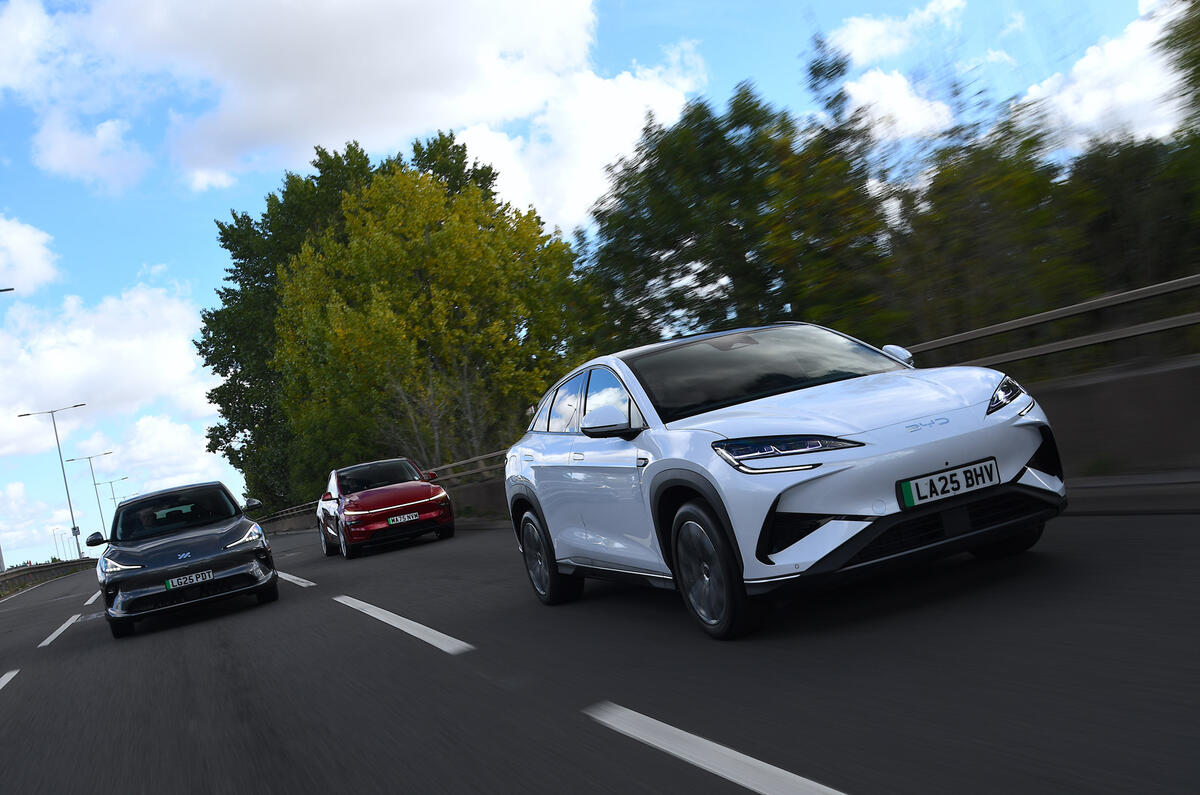The UK car industry has urged the government to rethink plans to impose a pay-per-mile tax on EVs or risk recent growth in the sector being "wiped out".
Revealed: Autumn budget confirms PHEVs will also pay-per-mile; gov expects to lose 400k EV sales
The new tax, set to be detailed later today (26 November) in chancellor Rachel Reeves's Autumn Budget, is described by the Society of Motor Manufacturers (SMMT) as a measure that contradicts recent efforts to boost EV uptake, with the potential to "inflict severe damage" on the UK automotive industry.
The SMMT welcomed some of the government's recent pro-automotive initiatives, including the implementation of a new £2.5 billion innovation fund; the securing of preferential treatment for automotive products in trade deals with the US and India; changes to the zero-emission vehicle (ZEV) mandate framework; and the recent introduction of the new Electric Car Grant (ECG).
These steps, the body said, are "evidence of government's recognition of the importance of the sector to both economic prosperity and decarbonisation". However, it cautioned that some of the elements of the Budget "risk negating this support".
Chief among those proposed measures is the mooted introduction of a new pay-per-mile tax for EVs, which the SMMT has previously called "entirely the wrong measure at the wrong time".
Under this new scheme, the government is set to introduce a levy of 3p per mile driven in an EV – a move aimed at recuperating lost revenue from the duty imposed on petrol and diesel, as motorists transition away from ICE vehicles.
That's in addition to the £195 that EV owners must now pay in vehicle excise duty (VED, or 'road tax') each year, meaning an EV driver who covers 8000 miles per year would be liable to pay £435 in annual charges that didn't exist last year.
The pay-per-mile scheme is planned to be introduced in 2028, pending a public consultation process.
The SMMT said that "singling out electric cars" for the new tax would discourage prospective EV buyers from making the switch, thereby making the ZEV mandate's "ever-tougher sales targets even more costly and challenging to achieve".
Under the terms of the mandate, car makers must achieve an EV sales mix of 28% in 2025, rising in increments to 80% by 2030, on the way to going exclusively electric in 2035. In the 10 months to the end of October, EVs had a market share of 25.4%.
"No mitigation measures, including additional grant funding, could offset the message this measure would send consumers," the SMMT said, noting that car makers have already spent a combined £8.5bn discounting EVs to hit their targets so far.
In a survey of 4368 car buyers, Autocar sibling title What Car? found that 52% would be put off choosing an EV if the pay-per-mile tax scheme were introduced and just 20% thought it was a good idea.
The SMMT also repeated its call for the government to reverse its decision to axe the Employee Car Ownership Scheme (ECOS).
ECOS, operated mainly by car makers and dealers, allows employees to buy new cars at significantly reduced prices, with low monthly repayment bills and little to no interest charged. Usually, after six months or 6000 miles, the employee then sells the car back and replaces it with another under the same terms.








Join the debate
Add your comment
As a household with two EVs we have no issues with paying additional taxes, as long as they are fair and proportionate. Our choice of changing to EVs was not solely done through incurring cheaper day to day running cost but was more down to the fact that the cars were simply much cheaper to lease than petrol equivalents at the time. That they're hugely cheaper to run day to day at the moment is a bonus. If pay per mile is introduced, I believe it should also reflect in a cost weighted means on a car's overall efficiency, that way the costs would be more in line with fuel duty.
Industry growth is coming from Chinese imports. That's growth we can do without, because they will kill UK manufacturing - the bit we really want.
And rampant fleet sales and other corporate giveaways distort the market against the kind of clever, efficient cars we need to see.
The SMMT is dominated by the salesmen who just see profit in all these boat loads of imports undercutting our factories. It's madness.
The SMMT wants their industry subsidised by the taxpayer, but nowhere in any article have I read how the SMMT proposes how the taxpayer pays for these subsidies.
Income from road tax is being reduced, nobody is arguing against that. How would SMMT balance the books?
Road tax is most certainly not being reduced. Like everything else it is subject to inflation while from April this year all EVs are required to pay road tax, even older models which have hithertoo been exempt. Furthermore, while benefitting from a substantial first year reduction, all EVs (which amount to the majority) costing more than £40k are required to pay the expensive car road tax amounting to an additional £425 per year. Where the deficit occurs is in fuel tax, where aside from EVs being four times as efficient, electricity is subject to a very much lower rate of tax than petrol or diesel. Hence the need for the government wanting to introduce a mileage tax for EVs.